It is important to have clear from the outset the real costs you will face when you buy property in Spain. It is equally important to be clear about the ongoing costs you will face as a property owner in Spain.
When buying property in Spain, always keep digital and hard copies of all invoices related to your purchase. Likewise, if you ever do building work on the property once you own it, keep copies of all licences and invoices. You may be able to offset these expenses against capital gains when you sell.
It is your responsibility to be informed and do your own numbers, rather than rely on the claims of others. Here we explain all the different types of costs, but bear in mind that the actual cost will depend on your particular circumstances.
Costs of buying property in Spain
As a buyer of a property in Spain there are a number of costs and taxes over and above the property price that you will have to pay. Depending upon whether you are buying a new property from a developer, or a resale property from a private individual, you will either have to pay VAT & Stamp Duty, or a transfer tax. The different cases are explained below, along with the other costs and taxes that are common to both cases.
New Build From a Developer or Bank
VAT & Stamp Duty (IVA & AJD)
These taxes apply for residential properties being sold for the first time (never previously occupied), or for commercial properties and plots of land. This is a national tax, so VAT is the same wherever the property is located.
At present VAT (known as IVA in Spain) is 10% on the purchase price of residential properties (villa, apartment, etc), and 21% for commercial properties and plots of land.
The Stamp duty (known as AJD) is 1.5% of the price of the purchase, but might go up in some regions, so be sure to check on the latest rate. Both VAT and Stamp Duty are paid by the buyer.
Resale
Transfer Tax (ITP)
This tax applies if the property is deemed to be a second transfer (i.e. a re-sale, not the first time a newly built home is bought), and is paid by the buyer. The general (national) rule of ITP is 10%.
Income Tax Provision When Buying From Non-residents
If the seller is not a Spanish resident, the buyer has to withhold 3% of the purchase price and pay it to the tax authorities (application form 211). If this is not done the property will be considered by the tax authorities as the asset backing the capital gains tax liability of the seller. This condition is very unlikely to apply when purchasing from a developer.
Costs that affect both new build and resale property purchases
Agency Fees
Estate agency fees or commissions are paid by the seller, unless otherwise agreed. If the buyer uses a search agency then search fees are paid by the buyer.
Agents charge between 2% and 15% of the sale price, depending upon the region and type of property. Unless the buyer has specifically agreed to pay the agent’s fee this cost will be built into the sale price.
Legal Fees
You are strongly advised to hire a lawyer to help you during the buying process. Your lawyer drafts and reviews contracts on your behalf and can explain all the legal and administrative issues you face. Your lawyer should also carry out any necessary due diligence (checking ownership claim of the seller, charges on the property, permits, etc.) and arrange all the required documents to complete the process (property registration, tax payments, etc.).
Legal fees for a purchase without any complications and charged for the process should be in the region of 1,000 to 2,500 Euros.
Mortgage costs
If you choose to buy with a mortgage then this will incur several additional costs. First there will be the property valuation that the mortgage provider will require before granting the mortgage. Then there will be the costs of the mortgage itself. This varies according to the provider, and even according to the particular branch. However there is usually some kind of opening fee of around 1% of the value of the mortgage. Finally a mortgage will increase the Notary expenses.
Notary Expenses
Notary expenses are nearly always paid by the buyer and are calculated in relation to the purchase price declared in the deeds of sale. To be on the safe side you should calculate Notary fees as being 1% of the purchase price declared in the deeds of sale. In many cases however Notary fees are more like 0.5% (or less) of the price declared in the deeds.
Property Registry Inscription Fees
Expenses related to inscribing the sale with the land registry are also nearly always paid by the buyer, and are calculated in relation to the purchase price declared in the deeds of sale. To be on the safe side you should calculate 1% of the purchase price declared in the deeds, though once again it depends upon the property and the area, and the fee could be considerably lower.
In Summary, allow for up to 15% of the purchase price in taxes and other costs.
If the buyer takes out a mortgage these costs can be somewhat higher due to an additional public deed for the mortgage and the inevitable bank charges involved. In this case transaction costs might reach between 10% and 12% of the value of the property purchased.
Banking Costs
To pay for the property, you will more than likely need to write a banker’s cheque. In order to do that, you will need to open an account in a Spanish bank and transfer money from the bank in your country. The cost of transferring the money can go up to 0,4% of the amount transferred. The banker’s cheque will most likely cost 0,5% of its amount.
Furniture Costs
Once you own a property you will need to furnish it. The cost of furnishing a property depends entirely upon what you want. Of course there is no limit to how much you can spend, though you can also get away with it on a tight budget (all from IKEA, for example).
Costs of Owning the Property
There will of course be costs associated with owning a property in Spain. Some of these will be maintenance costs, such as cleaning, repairing, reforming, utility bills, rubbish collection, and so on. These will be determined by the size and type of the property you buy. Obviously a large villa with a garden and pool will require much more effort and cost to maintain than a small apartment. For cleaning a figure of 10 Euros an hour is fairly typical throughout Spain.
Apart from the general maintenance costs referred to above, there are a number of costs in the form of taxes and fees that property owners in Spain face.
Property Ownership Tax (IBI)
A local tax on the ownership of property in Spain, irrespective of whether the owner is a resident or not. Calculated on the basis of the valor catastral (an administrative value that is usually lower than the market value, sometimes considerably so) set by the town hall the tax rate goes from 0.4% – 1.1% of the valor catastral depending on the Spanish region.
Personal Income Tax (IRNR)
Non-residents who own property in Spain have to pay an annual income tax that varies according to whether the property is rented out or not.
Not rented out
Non-resident property owners who do not rent out their property and who do not have any other source of income in Spain pay income tax based on the value of their property.
Rented out
If non-residents rent out their property and receive an income in exchange, they are obliged by law to declare this income and pay taxes on it. The taxable base and the tax rate will be determined by the laws as they apply to each person’s particular circumstances (taking into account the double taxation treaty – if any – between Spain and the country of origin of the non-resident). In many cases non-residents simply pay a flat rate of 25% of the gross income they earn from their property in Spain.
Residents in Spain will have to pay the income tax based on their income earned during the year. The tax rate depends on the level of income.
Community Fees
Owners of property that is part of any development, building, or complex in which common zones are shared with other owners are by law obliged to be members of the community of owners, know as the Comunidad de Propietarios. This will entail paying community fees for the upkeep of the common areas, and any other services that the community vote for. The fees will vary according to the magnitude of the common areas, the costs of maintaining them, and the services that the community vote for. A budget for annual community expenses is approved by majority vote of all owners (or representatives) who are present at the annual general meeting of the Comunidad de Propietarios.

Insurance
Household insurance will vary according to the circumstances of the owner and the type of property. However it should be born in mind as a cost that all property owners will face.
We can help with giving estimates for all these costs, especially in conjunction with our preferred lawyers: Spanish Solutions Legal and Tax
You might be interested in these related articles:
- How do I buy a property in Spain and what are the costs?
- When buying a house in Ireland is a bad idea (and buying in Spain is a good idea) Part 1
- Leaving Spain – What do you need to know and do?
- Buying A Property In Spain Is Hard. You Choose Your Hard
- Why buying a house in Ireland is a bad idea and why buying one in Spain is a good idea – Part 2





